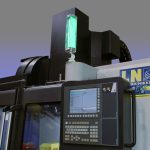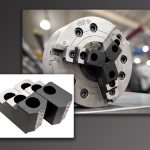‘Crazy’ good changes at Mikron Tool
‘Crazy’ good changes at Mikron Tool
Mikron Tool recently announced a change in leadership with Markus Schnyder, the long-standing chief operating officer of Mikron Switzerland AG, Division Tool, handing the reins to Elio Lupica to continue the company's exceptional market performance in recent years. In the following Q&A, Lupica shares some optimistic views for what comes next.
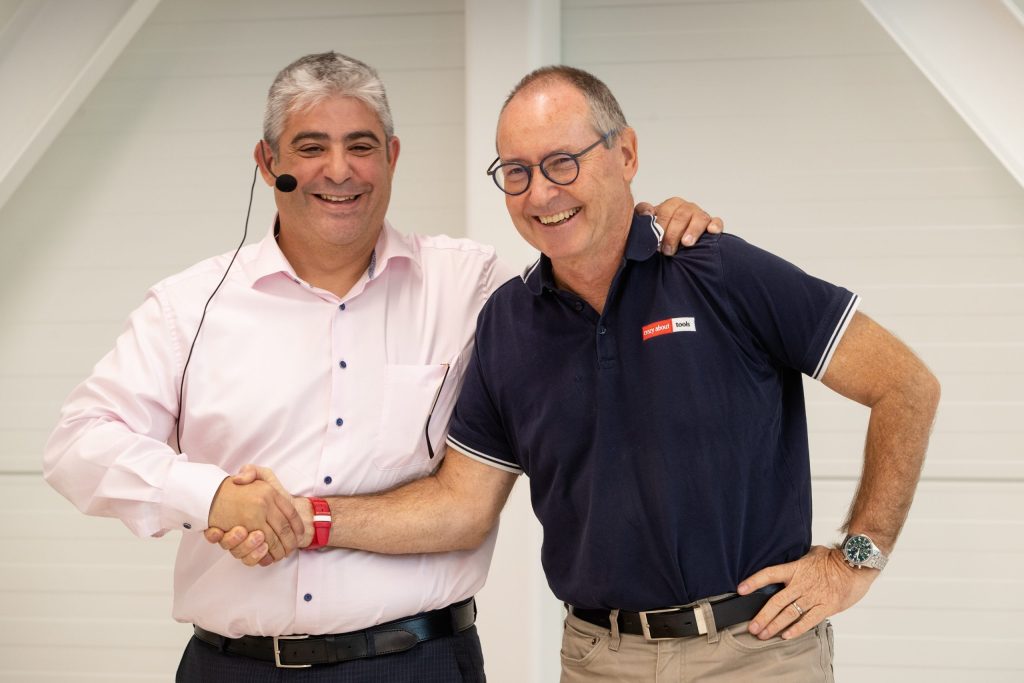
EDITOR'S NOTE: Mikron Tool recently announced a change in leadership with Markus Schnyder, the long-standing chief operating officer of Mikron Switzerland AG, Division Tool, handing over the management reins to Elio Lupica. In the following Q&A, Lupica shares some optimistic views for what comes next.
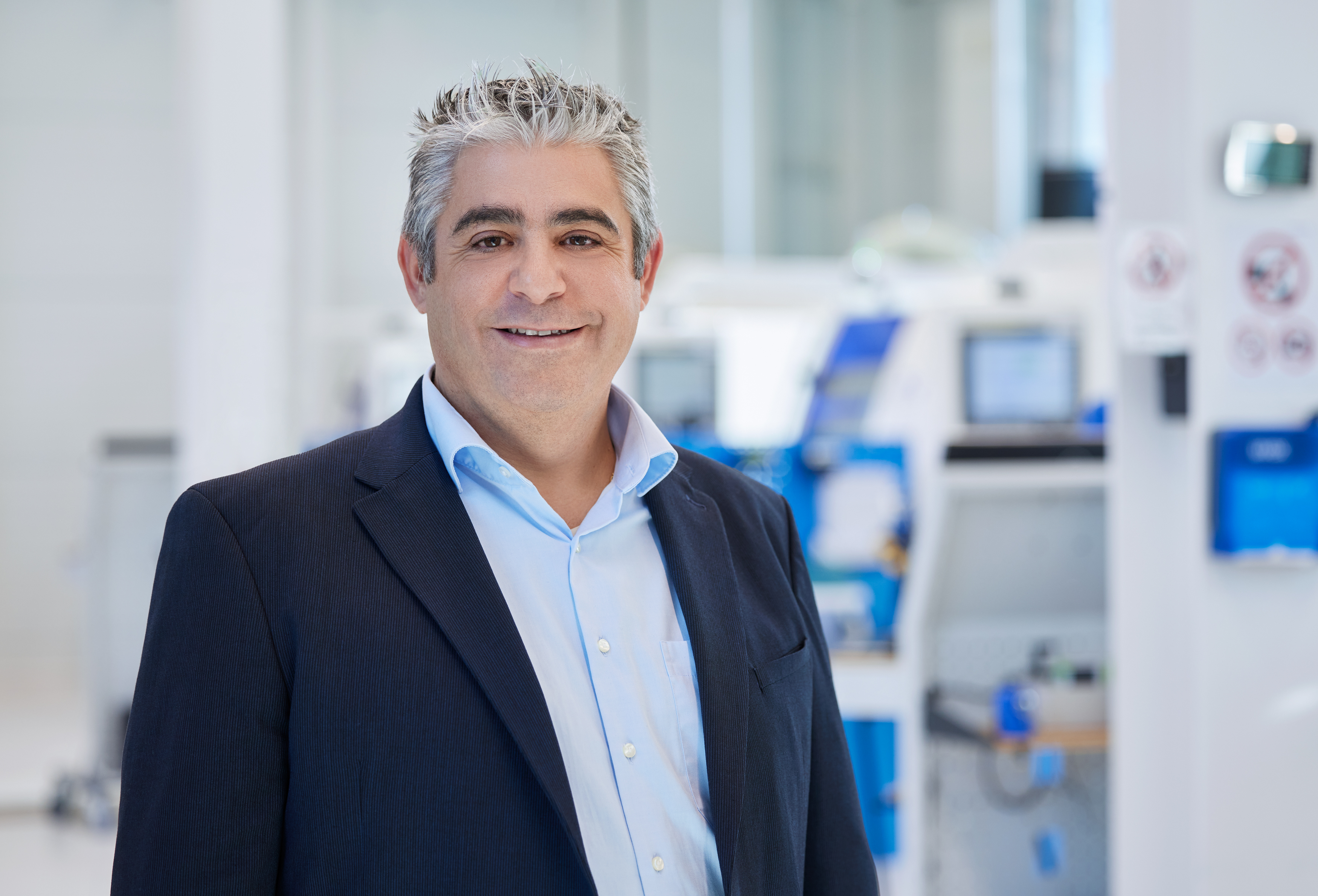 |
| Elio Lupica, who started his career at Mikron Tool in 2005, became COO at the end of last year. All images courtesy of Mikron Tool. |
Q. Congratulations on your new role. Can we expect great changes from your management?
Markus Schnyder and I have been working side by side for more than 15 years. With him as the COO and me as his deputy—together with our outstanding team—we shaped the reality of Mikron Tool.
Our company is characterized by a solid innovative spirit. This includes constant investments in the latest technologies for production and product development. We have a tremendous commitment to quality and are always looking to top our high standards. This way, we guarantee our customers continuous performance improvement with our products.
With respect to our market strategy, we make every effort to expand into future markets. I will continue to pursue this course with the involvement of the entire Mikron Tool team. It is tremendously encouraging that our future-oriented new developments are already bearing fruit.
| Markus Schnyder says farewell |
|---|
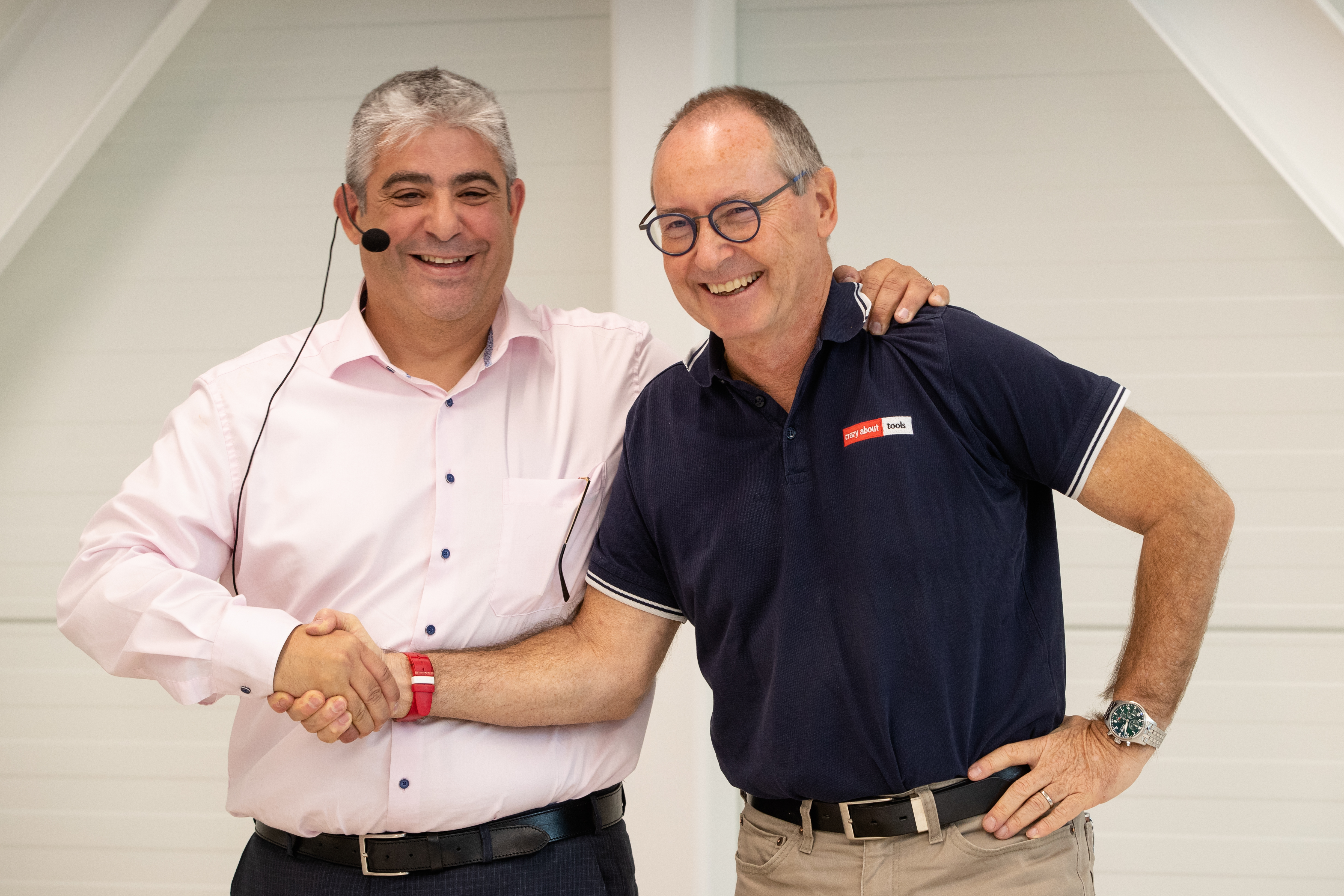 Lupica (left) and Schnyder. |
| Markus Schnyder, who is retiring after 24 years at the helm of the tool manufacturer, will continue to support the company in an advisory capacity. Because Schnyder recognized the huge market potential for precision tools—when he was head of the tool department at the Mikron Group—he pushed forward the foundation of the autonomous company Mikron Tool SA in 1998 as a "spin-off" of the tool department. Thanks to his leadership, passionate innovative spirit, strategic expertise and crazy ideas, Mikron Tool expanded into a division of Mikron Switzerland AG. Today, the company employs 250 people in four locations across the world and has one of the most modern technology and competence centers for micro-machining. |
Q. The company still faces challenges. How are you handling these?
I believe that the biggest challenge for the mechanical engineering and metalworking industries in the coming years will be in the automotive industry. It is still unpredictable because of the transition from the combustion engine to electric vehicles with negative volume trends—regarding machined parts—and high price pressure.
How is Mikron Tool responding to this?
In 2008, we had to deal with the automotive industry's greatest crisis. At that time, our product portfolio was oriented toward the machining of steel components, which are the preferred choice in the automotive industry. We quickly realized that we needed to decrease our dependence on this industry to avoid jeopardizing stability and job security.
Has that been successful?
Yes, absolutely. We responded with new ideas. Finding new markets became our leitmotiv. In a stroke of genius, Mikron Tool turned to processing materials that are difficult to machine: "super materials" such as stainless and heat-resistant steels, super alloys, titanium, and cobalt-chromium alloys. The big advantage was that the competition in high-performance tools for very small machining operations was still in its early stage.
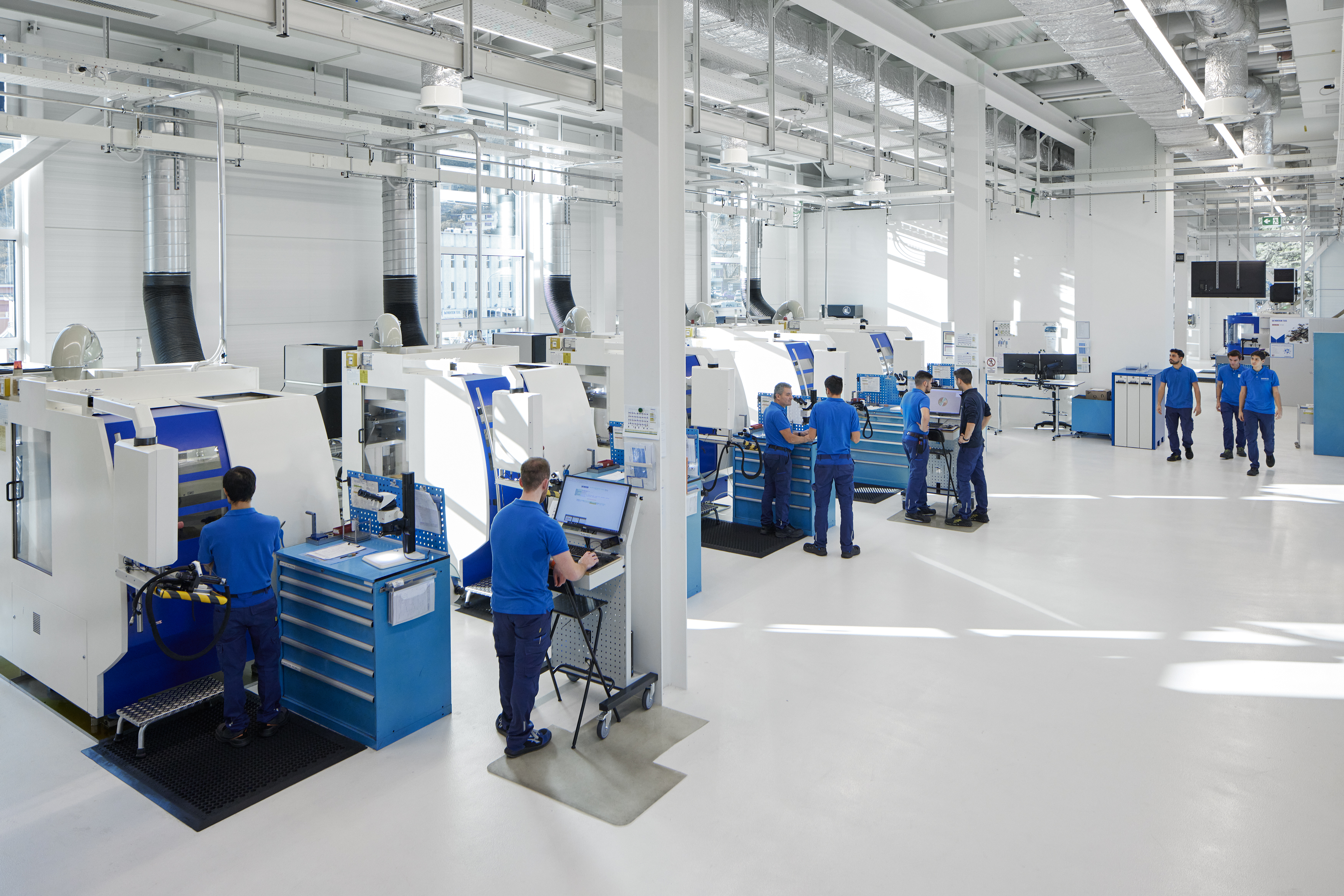
In 2022, Mikron Tool extended its production facility in Agno by 1,000 m2, giving it a total area of 3,500 m2. The company is investing in higher production capacities and the latest technologies.
We have also become more internationally oriented and have begun to tap into high-tech countries such as China and the United States, where heat-resistant materials and stainless steels are gaining ground. This is because the aerospace market was much more pronounced in the U.S. than in Europe. Furthermore, stainless steel has prevailed in many industries thanks to its outstanding properties. This trend has also reached Europe. The decision to diversify our product range opened completely new outlets, including in the "future markets."
Q. Before we address the future markets in more detail, how would you say the current geopolitical situation and the pandemic have affected Mikron Tool?
During the pandemic, it was a huge advantage to have four locations globally. The COVID policies of Switzerland, Germany, the U.S., and China differed greatly. When we suffered sales losses in one country because of the restrictions imposed, we were able to compensate for this in the other markets. Another advantage was our two production facilities: one in Switzerland and one in Germany. This meant that we were never really at risk of a total production shut-down in the event of a lock-down, and we were always able to meet our customers' needs. In the end, we managed to achieve growth even in this difficult period. 2022 was really our best year since the foundation of the company.
As far as the geopolitical situation is concerned, we are affected by its indirect consequences such as inflation, rising prices, and the energy shortage. In the latter, energy-saving measures or the use of renewable energies are taking effect. At the Agno, Switzerland, facility, we use a state-of-the-art mixing plant to recover heat from production and therefore no longer consume any fossil fuels. And we save 370,000 kilowatt hours a year thanks to a new refrigeration system.
In order to counteract the rising costs of materials or services, we needed sustainable measures that increase productivity and optimize processes. To this end, we can invest in new technologies and software. In times of rising prices and currency instability, it is sensible to push ahead with the necessary investments in this direction.
Q. What influence do the most important industry trends have on Mikron Tools' strategy? What are your future markets?
One important theme is the medical technology market. The growing and aging population has led to an increased demand for medical devices. The application areas that are relevant to us are orthopedic bone plates and screws, implants and surgical instruments.
Another important trend is miniaturization. This takes conventional materials to their limits. The more future-oriented the industry, the more it needs corresponding materials. A reduction in the weight and mass of products and an increase in their mechanical, thermal, and chemical loads lead to the use of high-performance materials.
This is what gives our company its position as a solution provider for sophisticated materials of the kind used in medical and dental technology as well as in the aerospace industry. The energy sector, the food industry, and the watch-making industry are, for the same reasons, also important growing markets. Not to forget the electric/electronic industry, which must deal with lead-free brass.

The new titanium drill series CrazyDrill Cool Titanium allows titanium alloys and pure titanium to be machined efficiently. This was rewarded with Switzerland's exclusive MEM industry award for the best innovation in 2022.
Q. What measures are you taking to expand the future markets?
We must always be at the cutting edge of technology in order to be able to set a new technological course. Thus, we continually invest in our technology center, which is one of the most modern R&D centers for machining in the micro segment. Our machinery has been consistently streamlined for the high-performance machining of demanding materials. Here, our specialists, who have achieved an incomparable level of knowledge with respect to tool manufacturing, materials science, and process technology, are developing ground-breaking tool innovations with a focus on future markets. The four innovation prizes that we have been awarded in the past eight years show that we are quite good at this.
Q. That is a remarkably good yield. But that cannot be enough from a market-strategy perspective, can it?
That is true. We have entered a close collaboration with the machine tool manufacturer DMG Mori. With our high-performance tools and their highly dynamic machining centers, we can develop and realize the most complex production strategies for customer projects, primarily in the field of medical technology. In such projects, we unlock our full potential for optimization. We are often able to reduce the production times by more than 50%.
In order to provide our customers with professional support, we rely on technical experts with segment-specific training as well as the ongoing professional development of our sales force. We take part in industry-specific trade fairs, seminars and congresses throughout the world. And, most importantly, we work with our technology partners to organize regular themed "Technology Days" in our technology and competence center, to which we invite our business customers. We recently hosted around 20 Spanish customers for Medical Day 2022. A knowledge transfer at the highest levels took place.
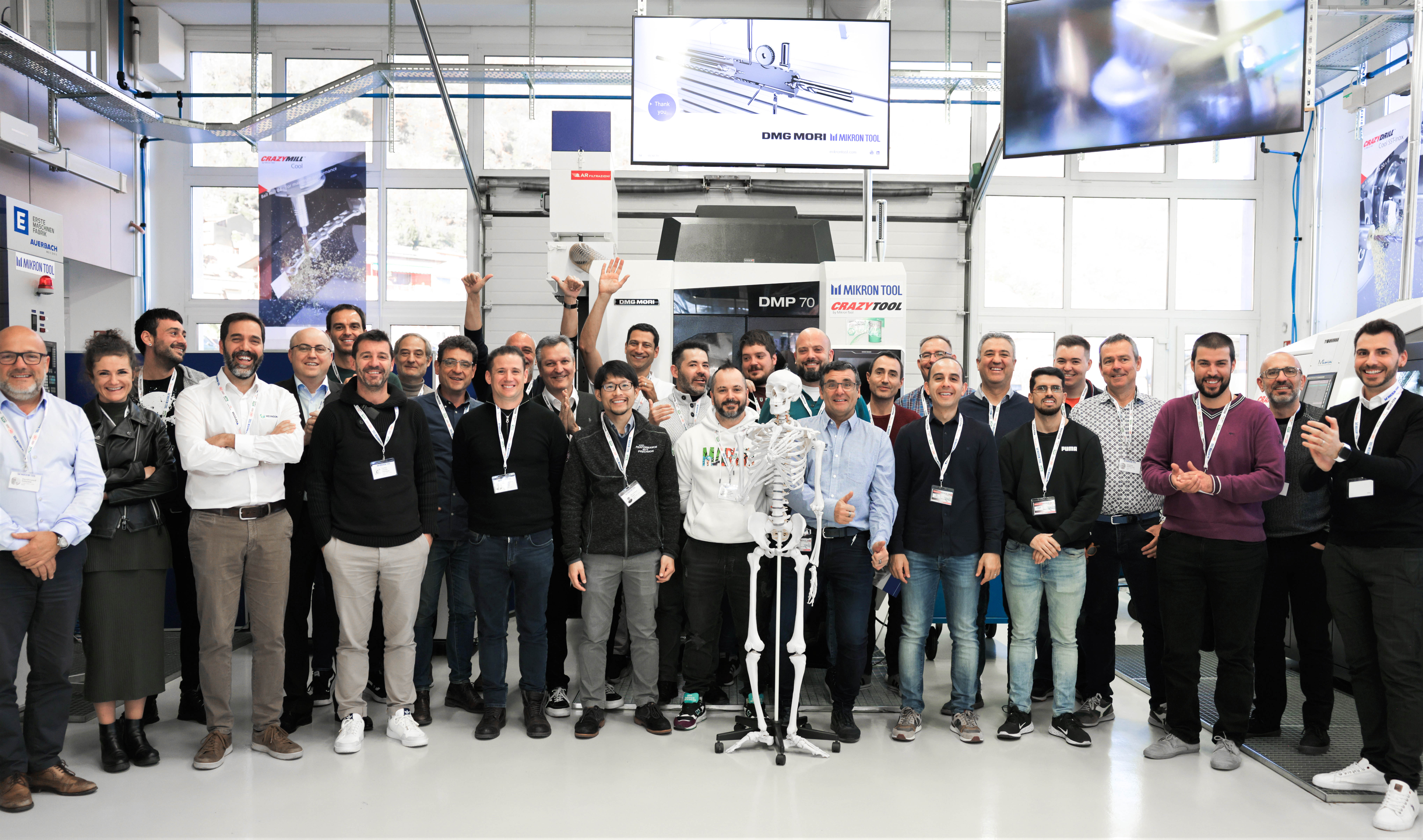
Customers from Spain who attended Medical Day 2022 were able to see the efficiency of Mikron Tool technology first-hand.
Q. What do you consider to be Mikron Tool's greatest strength?
The fact that we have become a full-service partner for our customers. We also offer tools that are twice as good as other standard tools. In the form of our new "CrazyService Products," we provide engineering services from tool tests to process development. In the last 18 months alone, we have completed 40 customer projects from the medical, automotive and aerospace industries. That is quite crazy.




